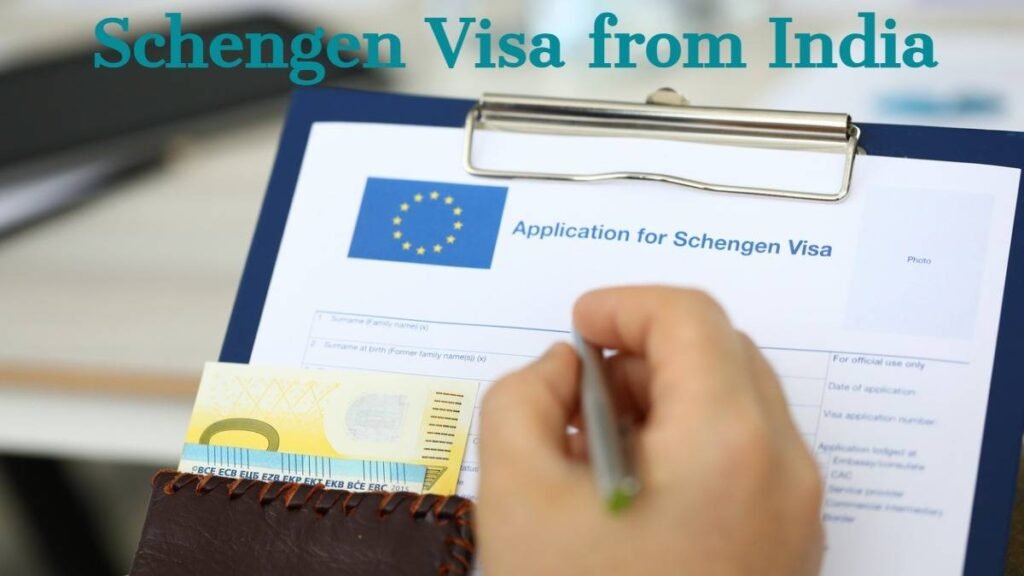What is Schengen Visa and What are the Procedures?
|
The Schengen cooperation agreement took its name from the town of Schengen in Luxembourg, where it was signed for the purpose of ensuring the free movement of persons and goods between the member states.
All European Union (EU) member states except five countries UK, Ireland, Romania, Bulgaria and Cyprus and four non-EU countries namely Iceland, Norway, Switzerland and Lithuania are part of the Schengen area. The remaining member states are Austria, Belgium, Czech Republic, Denmark, Estonia, Finland, France, Germany, Greece, Hungary, Italy, Latvia, Luxemburg, Malta, Netherlands, Poland, Portugal, Slovakia, Slovenia, Spain and Sweden. The Schengen system allows travel between its 25 member countries (21 European Union states and four non-EU members) Over 400 million Europeans currently enjoy passport-free travel across the Schengen area. Schengen visa applicants have to undergo biometric scans to record 10 fingerprints and a facial image as part of the visa application process. Sharp rise in visa costs, especially for children The government of Switzerland announced that the cost of obtaining a Schengen visa to visit the country will increase from 60 euros (approx Dh245.84) to 80 euros (approx Dh327.73) for adults, a rise of approximately Dh82, starting February 2, 2020. The fee for minors aged between six and 12 will rise even more sharply: from 5 euros to 40 euros. The changes also promise to make it more efficient and faster to obtain a visa. It will be possible to submit applications six months before taking a trip instead of the current three months. There will also be an option to fill in applications electronically, swissinfo.ch. Multiple-entry visas with a longer validity period will be issued for a period of up to five years rather than the current one-year limitation.
POINTS TO REMEMBER
1. Find out which country / countries you will be travelling. If you are travelling to more than one country during your trip you will need to obtain a Schengen Visa from the consulate of the country you intend to visit first. For example if you are travelling to Portugal but will be visiting Greece and Italy too, you need to obtain your Schengen Visa through the Portuguese consulate as your initial point of entry will be through Portugal. However, in cases of short trips, the number of nights spent in a Schengen country will determine which country you need to apply for the Visa . It may be a country that might not be the first point of entry. 2. Make sure you know how long you intend to stay. A Schengen Visa is usually granted as a single entry or multi-entry visa and is valid for 3, 6 or 12 months. However each consulate grant Schengen Visa’s using different scoring criteria. It’s important to be very clear and honest about your travel intentions. 3. Ensure you have proof of funds. When applying for a Schengen Visa you will need to provide current bank statements amongst other documents. 4. Book accommodation and flight. It’s important to check with the consulate first with regards to what documents you need in order to obtain a Schengen Visa. While Spain requires that a flight has been booked and paid for and accommodation reserved, Italy, France and Portugal only require flight and accommodation information. Check and double check with the consulate in question. 5. Get Travel Insurance. You will need travel insurance when you apply for a Schengen Visa. 6. Ensure you plan early to apply for the Schengen Visa. Some take a week, others take 15 working days. It’s important to take this into account when planning your holiday. It is also important to remember that you may only get an appointment to apply for the visa in 3 weeks time so this should be taken into consideration before booking your holiday. 7. Ensure your passport is not about to expire. Most countries require your passport to be valid for travel for the next 6 to 12 months before it’s due to expire. You will also need a blank page (sometimes 2 opposite) in the passport to accommodate the visa stamp.
Expatriates: UAE Residence visa should be valid for minimum six months.
A Schengen visa is needed when you are visiting one or several of the countries of the Schengen Area (i.e. Austria, Belgium, Czech Republic, Denmark, Estonia, Finland, France, Germany, Greece, Hungary, Iceland, Italy, Latvia, Lithuania, Luxembourg, Malta, Netherlands, Norway, Poland, Portugal, Slovakia , Slovenia , Spain, Sweden, Switzerland).
+ The duration of your total stay in Schengen countries shall not exceed 90 days in a period of 6 months, starting from the date of first entry.
+ In case you intend to visit several Schengen countries, you have to apply for a Schengen visa at the Greek Visa Application Centres when: – your main destination (the Schengen country where you will spend the longest time) is Greece, or – you are spending the same amount of days in several Schengen countries, but Greece is your first port of entry into the Schengen Area.
+ Only UAE nationals and nationals of third countries that are legal residents in UAE can apply for a visa at the VFS Greece Visa Application Centre in Abu Dhabi and Dubai
+ Visa applications cannot be submitted earlier than three months before the expected arrival in the Schengen Area.
+ Applicants must hold a valid passport issued within the previous 10 years, containing at least 2 consecutive blank pages. The validity of the passport should extend for at least 3 months after the intended date of departure from the territory of Greece If you do not meet the above mentioned criteria, a new passport must be obtained before submitting your application.
+ All applicants must submit their visa application in person at the Visa Application Centre.
+ At the time of application applicants will be required to submit their biometrics (fingerprints, digital photo). For more information, click here.
+ The applicant may be requested to appear in the Embassy for interview. In this case, the applicant will be accordingly informed by VFS.
+ Due to security reasons only the applicant will be allowed inside the application centers. Any accompanying family, friends etc. must remain outside the area.
Processing time: VFS Global is the authorized Centre to submit Schengen & UK Visa Applications in UAE. Premium and doorstep services also available. Doorstep visa service available for UK, Switzerland, Czech Republic and South Africa. Schengen Visa waiver for UAE Nationals Travel guidelines about wearing Veil (Neqab)European states who enforced a ban on burqas include France, Belgium, Denmark, and the Netherlands, as well as some European cities such as Barcelona in Spain, who banned any form of face covering since 2010. The Hesse State in Germany and a number of Italian cities have also banned the veil. The Danish courts, a German state, Hesse, and a number of Italian cities have also issued similar bans. On the first of July 2016, the Swiss canton of Ticino imposed a ban on burqa. Offenders can be fined up from 100 to 1,000 Swiss francs [Dh377 to Dh3,774], as well as deportation. The fine can increase if the offender insists on wearing it. The Italian-speaking Canton of Ticino is located in the southeast of Switzerland, and receives a regular influx of tourists who travel to see the lakeside city of Locarno. According to the law, which was voted in by a 2013 referendum, burqas are forbidden in shops, restaurants, or public buildings. The UAE embassy in the US can be contacted on 202-243 2400. |


